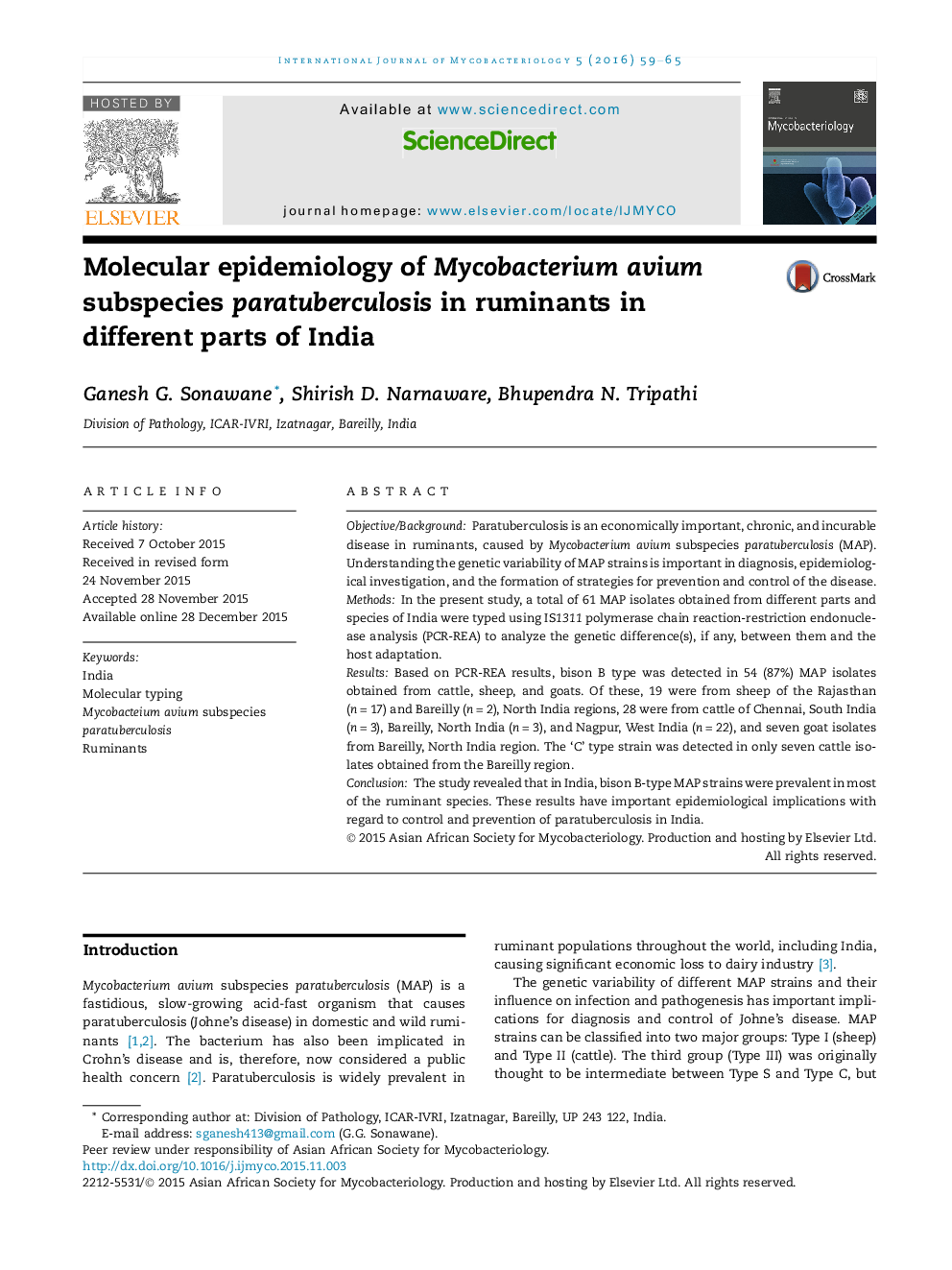| Article ID | Journal | Published Year | Pages | File Type |
|---|---|---|---|---|
| 3404991 | International Journal of Mycobacteriology | 2016 | 7 Pages |
Objective/BackgroundParatuberculosis is an economically important, chronic, and incurable disease in ruminants, caused by Mycobacterium avium subspecies paratuberculosis (MAP). Understanding the genetic variability of MAP strains is important in diagnosis, epidemiological investigation, and the formation of strategies for prevention and control of the disease.MethodsIn the present study, a total of 61 MAP isolates obtained from different parts and species of India were typed using IS1311 polymerase chain reaction-restriction endonuclease analysis (PCR-REA) to analyze the genetic difference(s), if any, between them and the host adaptation.ResultsBased on PCR-REA results, bison B type was detected in 54 (87%) MAP isolates obtained from cattle, sheep, and goats. Of these, 19 were from sheep of the Rajasthan (n = 17) and Bareilly (n = 2), North India regions, 28 were from cattle of Chennai, South India (n = 3), Bareilly, North India (n = 3), and Nagpur, West India (n = 22), and seven goat isolates from Bareilly, North India region. The ‘C’ type strain was detected in only seven cattle isolates obtained from the Bareilly region.ConclusionThe study revealed that in India, bison B-type MAP strains were prevalent in most of the ruminant species. These results have important epidemiological implications with regard to control and prevention of paratuberculosis in India.
